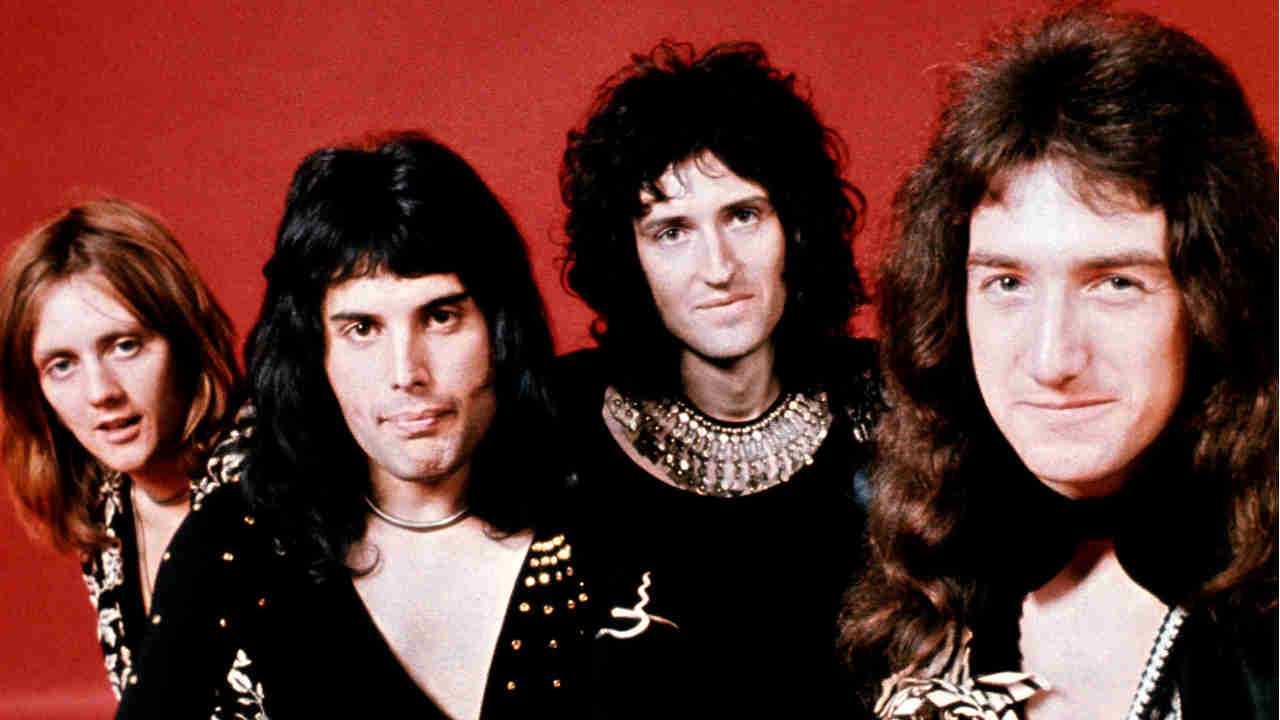
Like The Beatles before them, Queen could turn their hand to any kind of musical style that took their fancy, and do it brilliantly. From mad operatic epics, riffy hard rock and anthemic pop to funk, rockabilly and Noel Coward-esque end-of-the-pier fancies, their albums were musical universes unto themselves.
Despite that wide-ranging sonic approach, Queen still had an instantly recognisable sound. Thanks in a large part to Freddie Mercury‘s acrobatic vocals and Brian May’s one-man-orchestra guitar playing, songs as diverse as the immortal Bohemian Rhapsody, synth-heavy 80s blockbuster of Radio GaGa and swooning ballad Love Of My Life could only be the work of one band.
But even in a catalogue as diverse and unique as Queen’s, there are outliers. Not just songs that sound like nothing else they recorded, but songs that don’t even sound like Queen themselves.
Here are four perfect examples. Every devotee will be aware of them, of course, but for anyone whose knowledge of the band extends no further than the hits, here are the songs that will make you rethink what you know about Queen.

Son And Daughter (1973)
Don’t think that Queen left the really heavy stuff to Led Zeppelin and Black Sabbath. While their self-titled debut album (recently renamed Queen I) showcases glimpses of the band’s grand ambition – the ornate My Fairy King is the first step on a path that would lead them to Bohemian Rhapsody a couple of years later – they were still fundamentally a heavy rock band at this stage, and Son And Daughter is proof.
Dating back to their beginnings in 1970 (they played it at their very first gig), the three-and-a-half minute song reins in their flights of fancy in favour of sheer bludgeoning power. Driven by a mammoth riff that could give Sabbath and Zeppelin a run for their money, they never recorded anything so primitive or heavy again.
She Makes Me (Stormtrooper In Stilettos) (1974)
Brian May wrote parts of Queen’s third album, 1974’s Sheer Heart Attack, while recovering from hepatitis. God knows what kind of antibiotic-induced fever dream he was in when he came up with She Makes Me (Stormtrooper In Stilettos).
Even on an album that bounces between hard rock anthems (Now I’m Here) dandyish musical-hall glam (Killer Queen) and ragtime pastiches (Bring Back That Leroy Brown), the woozy She Makes Me… is out there on its own, not so much charging into earshot as drifting out of the mist.
With its hazy acoustic guitar and a breathy vocal from May addressing an unnamed and possibly unrequited figure of romantic devotion, it’s a shoegazing song almost 20 years before shoegazing was a scene. There’s nothing else remotely like it in their back catalogue, which is saying something even for Queen.
The Prophet’s Song (1975)
Bohemian Rhapsody sounds like nothing else that came before or since, right? Not strictly true. In fact there’s another equally bombastic and no less outrageous epic on the very same album, 1975’s A Night At The Opera.
Written by Brian May and clocking at two minutes longer than its more famous counterpart, the quasi-Biblical The Prophet’s Song is a raging storm of a song that builds from ominous calm to a disorientating, ear-splitting cacophony of shapeshifting vocals, before a thunderclap of guitars snaps it all back into something approaching normality.
Bohemian Rhapsody turned Queen into superstars, but Prophet’s Song proved that Freddie Mercury wasn’t the only mad genius in the band.
Get Down, Make Love (1977)
1982’s divisive Hot Space album is held up as the point where Queen ‘went disco’, but the band got there four years earlier with Get Down, Make Love. Appearing on 1977’s News Of The World - a great, if otherwise fairly conventional Queen album that landed right in the middle of punk and, yes, disco – this was a slice of sweatily erotic, sexually charged left-field funk rock that sounded like Freddie Mercury had written it the morning after stumbling out of some secret all-night fetish club.
Its leather-clad naughtiness was a world away from the triumphant arena rock of the same album’s We Are The Champions and We Will Rock You, underlined by the out-there instrumental section, which incorporated weird electronic whooshes and ecstatic groans where a guitar solo would normally go. Trent Reznor recognised its salacious allure – Nine Inch Nails covered it as the B-side of their 1990 single Sin.







